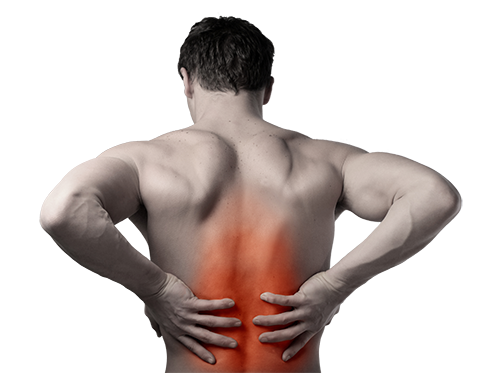Testosterone and Its Impact on Chronic Pain
Chronic Pain
Chronic pain is a debilitating condition that affects millions of people worldwide, causing persistent discomfort and reducing the overall quality of life. While various treatment options exist, the role of hormones in pain management has gained significant attention. In recent years, researchers have been exploring the connection between testosterone, a vital hormone predominantly found in males but also present in females, and chronic pain. This article delves into the impact of testosterone on chronic pain, citing medical research studies to shed light on its potential benefits and mechanisms of action.
Introduction
Chronic pain is characterized by persistent discomfort lasting for extended periods, typically beyond three months. It can arise from various conditions such as arthritis, fibromyalgia, neuropathy, and musculoskeletal disorders, among others. Traditional treatments often involve analgesics, physical therapy, and psychological interventions. However, the effectiveness of these methods may vary, and some individuals may experience inadequate relief. This has prompted researchers to explore alternative approaches, including the role of hormones like testosterone.
Understanding Testosterone
Testosterone is a hormone primarily produced in the testicles in males and in smaller amounts by the ovaries and adrenal glands in females. It plays a crucial role in the development of male reproductive tissues and secondary sexual characteristics. However, testosterone is not limited to its effects on reproduction; it also influences various bodily functions, including muscle mass, bone density, mood regulation, and pain perception.
The Relationship Between Testosterone and Chronic Pain
- Testosterone Levels and Pain Perception: Research suggests that testosterone levels can influence an individual’s pain perception. Low testosterone levels have been associated with increased pain sensitivity and a higher risk of developing chronic pain conditions. On the other hand, optimal testosterone levels may contribute to pain tolerance and management.
- Testosterone as an Analgesic Agent: Studies have indicated that testosterone can act as an analgesic agent, providing pain relief. It may modulate pain signals and alleviate discomfort in individuals with chronic pain conditions. This analgesic effect may be particularly beneficial for individuals who do not respond adequately to traditional pain medications. Testosterone therapy has shown promise in reducing pain intensity and improving overall pain management.
- T2 and Inflammatory Pain: Inflammatory pain, characterized by inflammation in the body’s tissues, is a common component of many chronic pain conditions. Testosterone has been found to possess anti-inflammatory properties, which may contribute to its analgesic effects. By reducing inflammation, testosterone can potentially alleviate the associated pain and discomfort.
- Testosterone and Neuropathic Pain: Neuropathic pain, caused by damage or dysfunction of the nervous system, is another form of chronic pain that can be challenging to manage. Emerging evidence suggests that testosterone may play a role in reducing neuropathic pain. It can modulate neurotransmitter activity and promote nerve regeneration, potentially providing relief to individuals suffering from neuropathic pain conditions.
Medical Research on Testosterone and Chronic Pain
- Testosterone Replacement Therapy for Chronic Pain: A study conducted on male patients with chronic pain explored the effectiveness of testosterone replacement therapy (TRT) in pain management. The results showed that TRT led to a significant reduction in pain intensity and improved overall pain control. This suggests that optimizing testosterone levels through TRT may be a valuable approach in managing chronic pain, especially in individuals with low testosterone levels.
- T2 and Fibromyalgia: Fibromyalgia is a chronic pain disorder characterized by widespread musculoskeletal pain and fatigue. A study investigating the relationship between testosterone and fibromyalgia found that lower testosterone levels were associated with increased pain severity and reduced quality of life in male patients with fibromyalgia. This highlights the potential role of testosterone in mitigating the symptoms of fibromyalgia and improving pain outcomes.
- Testosterone and Osteoarthritis Pain: Osteoarthritis is a degenerative joint disease that causes pain and stiffness in the affected joints. Research exploring the impact of testosterone on osteoarthritis pain revealed that testosterone therapy resulted in decreased pain scores and improved physical function in male patients with knee osteoarthritis. These findings suggest that testosterone may offer a viable treatment option for managing osteoarthritis-related pain.
Potential Mechanisms of Testosterone’s Analgesic Effects
- Neurotransmitter Modulation: Testosterone has been found to modulate the activity of neurotransmitters involved in pain perception, such as serotonin and endorphins. By regulating the release and uptake of these neurotransmitters, testosterone may influence the brain’s response to pain signals, leading to pain relief.
- Anti-inflammatory Effects: In addition to its analgesic properties, testosterone exhibits anti-inflammatory effects. It can inhibit the production of pro-inflammatory molecules and promote the release of anti-inflammatory substances. By reducing inflammation in the body, testosterone may indirectly alleviate pain associated with inflammatory conditions.
- Neuroprotective Effects: Testosterone’s neuroprotective effects may also contribute to its analgesic properties. It can support the maintenance and regeneration of nerve cells, potentially mitigating nerve damage and reducing neuropathic pain.
Conclusion
The connection between testosterone and chronic pain is a topic of increasing interest in medical research. Studies have highlighted the potential benefits of testosterone in pain management, particularly in individuals with low testosterone levels. Testosterone therapy has shown promising results in reducing pain intensity, improving pain control, and enhancing overall quality of life.
Incorporating testosterone therapy as part of a comprehensive pain management approach may provide relief for individuals suffering from chronic pain conditions. However, further research is needed to fully understand the mechanisms of testosterone’s analgesic effects and to optimize treatment strategies for different patient populations.
Hormone Treatment Centers: Clinic Introduction
Contact our medical team: Message Now
Latest posts by Jeff Dietrich
(see all)
